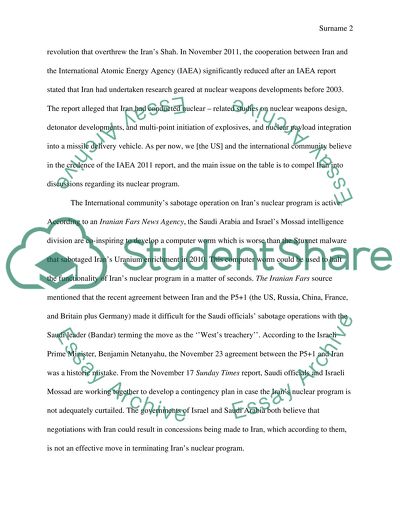Cite this document
(“Iran and Nuclear Question (Policy Brief/Diplomatic Cable/Memo) Essay”, n.d.)
Retrieved from https://studentshare.org/history/1497007-iran-and-nuclear-question-policy-brief-diplomatic
Retrieved from https://studentshare.org/history/1497007-iran-and-nuclear-question-policy-brief-diplomatic
(Iran and Nuclear Question (Policy Brief/Diplomatic Cable/Memo) Essay)
https://studentshare.org/history/1497007-iran-and-nuclear-question-policy-brief-diplomatic.
https://studentshare.org/history/1497007-iran-and-nuclear-question-policy-brief-diplomatic.
“Iran and Nuclear Question (Policy Brief/Diplomatic Cable/Memo) Essay”, n.d. https://studentshare.org/history/1497007-iran-and-nuclear-question-policy-brief-diplomatic.


